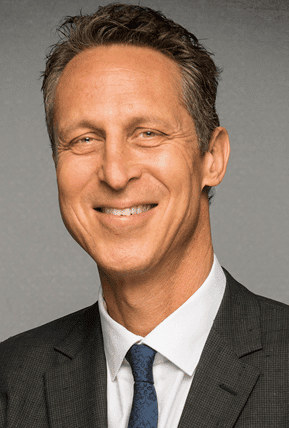
It’s not about how much money you make. It’s not about how many famous people you know, your neighborhood, or your job title. At the end of the day, the experience of life is really all just about how you feel. They say “health is wealth,” and it’s true. When we feel good, we’re able to step into our fullest potential and to do the things that make us the most happy. And here’s the secret: It’s all in your hands. The decisions you make—both small and big—are the building blocks for your sense of wellbeing and empowerment. No one else is going to care for your wellbeing the way you can, but you can make the decision right now to play a conscious role in learning to feel your best.
Making the choice to discover what wellbeing looks like for you—what feels good—is one of the most important gifts you can give yourself. I’ve spent my career honing concepts and tools to help people step into this personal power. Ready to get started? There are a few simple areas in life to focus on to start cultivating what feels good.
Food as Preventative Care
Our food and “sick-care” systems have failed us. Ingredients like high-fructose corn syrup, which greatly contributes to our increasing dia-besity epidemic, are subsidized by the government and included in everything from cookies to salad dressing and even infant formulas. Our healthcare system is designed to treat symptoms, rather than look at the person as a whole or focus on creating good health and preventing disease in the first place. It’s time that we take back control of our food system and the way we approach health. This starts with becoming an informed consumer and recognizing that health has many facets, all of which need to be nourished in order for us to feel genuinely good.
Eating a wide variety of colorful, real foods in their most natural form is a surefire way to provide your body with a nutrient-dense diet, while avoiding the heavily-processed ingredients that lurk in packaged foods. My Pegan diet (a blend of Paleo and vegan) is a balanced approach to getting the most out of your meals, with a focus on leafy greens and non-starchy vegetables, a bit of fruit, lots of healthy fats, nuts, seeds, and using clean animal proteins as a condiment instead of the centerpiece of a meal. I’ve seen this way of eating transform thousands of lives. When it comes to quality, choosing organic produce and pasture-raised meats is always the best option. To take it a step further, look for farms that can supply these foods in your area, so you’re supporting your local community while eating for vibrant health.
Relationships Matter
While getting in touch with our emotional health and cultivating positive relationships can be pretty uncomfortable for many people, it absolutely is a major aspect of feeling good. Stepping into our feelings with vulnerability, love, and kindness can help turn our emotional compass into a friend, instead of a foe. That’s because the more we push the bad feelings away, the more power they seem to hold over us. My favorite ways to support emotional health are deep breathing practices, talking to someone I trust, and taking time to find some self-compassion.
Happy relationships are key to a healthy life. It’s from my own experiences with unsuccessful relationships and striving to improve my connections that I was able to heal and find the most loving relationship of my life. Now, I encourage my patients to do the same, so that they can support their health and wellbeing from all angles. From your relationship with yourself, to your children, friends, and romantic partners, each of these holds significance for your short- and long-term health outcomes, starting in childhood and having a cumulative effect throughout life. We know now, that those with strong social connections benefit us mentally, emotionally, and physically.
Taking the time to assess your relationships and tap in to what people and actions make you feel good and how you can reciprocate those feelings will improve your connections and create a warm space for new ones to occur. It’s important to note that your relationship with yourself comes first. Without a strong sense of self and abundant self-love, it’s hard to give ourselves fully to others. Self-care is not selfish, it’s necessary. Listen to your daily internal dialogue and get a feel for what kind of relationship you have to your mind, body, and spirit.
Movement and Meditation Makes Magic
Exercise is a vital part of any well-rounded wellness plan. It boosts mood, supports cardiovascular health, and improves cognition, along with a host of other benefits. We’re always told to exercise more, but that vague instruction leaves a lot to be desired, especially if you’re just starting to regularly work movement into your routine.
I personally don’t like going to the gym. There are plenty of other ways I move my body, though, and have fun doing it—this is the key to a sustainable exercise practice. Find something you love to do and make it a playful experience. Realize that you can be active anywhere at any time. One of the amazing benefits of physical activity is that it causes your body to release feel-good chemicals, these become a huge motivator for you to make exercise a habit and not a hardship.
Tuning into your body doesn’t have to be highly physical. Stillness can make us stronger—our minds are muscles too. When we learn to gently quiet our minds and tap into this stillness, we are able to more fully show up in our everyday lives.
Community Counts
We often only focus on eating well and moving our bodies, which are most definitely keys to good health, but they mean nothing if someone feels isolated, disconnected, and lonely. We know that friend-power is more powerful than willpower, and that comes in the form of a supportive and aligned community. When surrounded by people that see us, elevate us, and support us, we feel like anything is possible.
Emerging science is beginning to unveil the effects that community, or a lack thereof, can have on health and mortality. Research has shown that social stress, such as rejection and isolation, is a stronger predictor of chronic disease-related mortality than traditional factors like inactivity, smoking, and excessive alcohol use. Socially isolated people report greater disruptions in sleep and accelerated cognitive decline. And, we’ve seen that across multiple countries and cultures, mortality risk decreases as social integration increases.
When people come together, they can create real, lasting change. There are many ways we can support this process and increase our community connections, like eating with others, volunteering, prioritizing time with our loved ones, taking a local class, and checking in on others who we think might be struggling with social isolation. Not only will these actions make you feel good, they’ll support others around you and create stronger relationships in your life.
Health is not a straight line. It’s a wheel of different spokes, each influencing the next and creating a cycle of sustainable and vibrant health. Incorporating each of these areas into your wellness routine will allow you to finally take control of feeling good.
—
 Dr. Hyman is a practicing family physician, a 10-time #1 New York Times bestselling author, and an internationally recognized leader, speaker, educator, and advocate in his field. He is the Director of the Cleveland Clinic Center for Functional Medicine. He is also the founder and director of The UltraWellness Center, chairman of the board of the Institute for Functional Medicine, a medical editor of The Huffington Post, and a regular medical contributor on many television shows including CBS This Morning, Today Show, Good Morning America, CNN, and The View, Katie and The Dr. Oz Show.
Dr. Hyman is a practicing family physician, a 10-time #1 New York Times bestselling author, and an internationally recognized leader, speaker, educator, and advocate in his field. He is the Director of the Cleveland Clinic Center for Functional Medicine. He is also the founder and director of The UltraWellness Center, chairman of the board of the Institute for Functional Medicine, a medical editor of The Huffington Post, and a regular medical contributor on many television shows including CBS This Morning, Today Show, Good Morning America, CNN, and The View, Katie and The Dr. Oz Show.